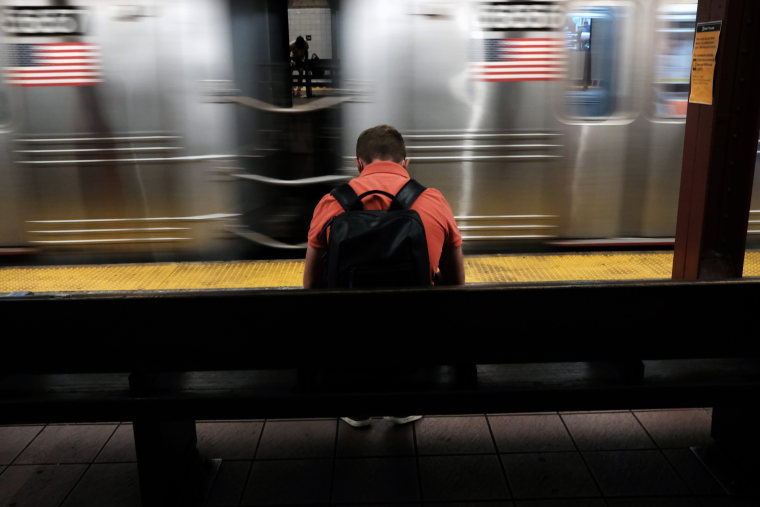While many American workers have begun reporting back to their offices and job sites in recent weeks, a new study suggests that commuter life may have changed permanently.
“I used to take the bus and train everywhere, but not anymore. I will not do it," said Ann Kaminski, who lives in Chicago and works in advertising. "I drive to places if I can’t walk or ride my bike."
She and her husband own one car. If returns to work accelerate, they plan on buying a second vehicle rather than return to the mass transit that both of them loved about the city.
According to a new Cars.com survey of over 3,000 American workers, among those who will go back to their offices, many are changing the way they get there, sizable numbers giving up public transportation and switching to personal vehicles to avoid the risk of infection.
Over 60 percent of respondents plan to swap public transportation for their cars. And almost a quarter have purchased a car during the past six month, with more than half of those saying they did so specifically because of the pandemic.
“There is a major shift in commuting behavior, which is likely to have a lasting impact long after we return to the office,” said Matt Schmitz, assistant managing editor for Cars.com which conducted the survey. “And when they do finally return to the office, it won’t be via mass transit. Personal vehicles will dominate the work commute as distrust in public transport and ride-sharing continues.”
Dealers around the country are reporting more buyers coming into showrooms as they shift away from mass transit, said Tyson Jominy, a senior analyst with J.D. Power and Associates.
Equally significant was the finding that more than a third, 35%, of those surveyed plan to commute less than before, suggesting their companies will be offering more flexible situations that could allow them to work at home either all or part of the time.
Dan Strayer, a help desk analyst at Ascension Technologies in Waterford, Michigan, was told, “Unless we are essential hospital personnel we will be working from home until further notice…. so, I’m not driving anywhere unless I have to.” And he may not have to in the future since his job would be particularly easy to handle remotely.
Jeff White, a salesman for an electric supply company in Peachtree, Georgia, says he has no idea when – or if – he’ll be required to go back to his office, which required a daily round trip of 50 miles through heavy Atlanta traffic. Working from home since March, White says, “is great. I love it. My commute is walking down the stairs.” Eventually, however, he expects he’ll have to visit customers in person, rather than connecting by phone, even if he doesn’t return to his office.
The long-term impact of the COVID-19 crisis on how and where Americans work may not become fully apparent for a year or more, according to many experts. For one thing, it is not clear how long the pandemic will hang on, nor whether vaccines and treatments will prove effective. If the situation were to be brought under control later this year it could have a very different impact than if it dragged on for a year or more, as happened with the Spanish Flu a century ago.
It’s been more than five months since Samantha Hoyt last reported into her office in Dearborn, Michigan where she’s a manager working on the launch of the new Ford Mustang Mach-E battery-electric vehicle, and she’s not sure when she’ll be back at her desk.
The second-largest domestic automaker now says it will be at least January before it brings back the vast majority of the roughly 30,000 salaried workers normally stationed in and around its suburban Detroit headquarters due to the COVID-19 pandemic. Even then, Hoyt expects to see major changes in her work situation going forward.
“I think working from home will become more the norm as managers find it works,” she told NBC News. “We’ll occasionally go to the office, but it’s going to be, at most, just half of the time going forward.”
Hoyt is also among those suffering from what has been dubbed “Zoom fatigue,” with a major part of their work days consumed by online video calls.
The Ford veteran says she would like to have a bit more flexibility to when and where she works, going forward, but she misses her normal office environment.
“I miss the human contact,” she said, “and I miss the disconnect from home and office, the drive home that helps me separate from work.”
